Championship Weekend Film Study: Key Plays for Each Team to Reach Super Bowl
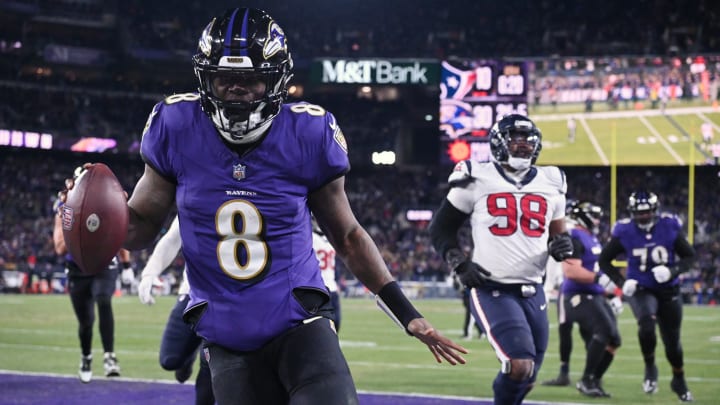
Two games this weekend. Two games for the Super Bowl.
After watching the Baltimore Ravens, Kansas City Chiefs, Detroit Lions and San Francisco 49ers win last weekend, we have the final four. And Sunday, that quartet will battle for the two spots in Super Bowl LVIII.
To figure out who wins, we pulled three plays from last weekend to highlight what the Ravens, Chiefs and Lions must do if they’re going to move on. And for the 49ers, there’s one aspect they must stop most when facing Detroit.
Ravens have the ultimate weapon
Lamar Jackson is going to win his second MVP this season because he’s the best dual-threat quarterback on the planet. This play illustrates some of why.
Here, the Texans and Ravens were tied at 3 in the first quarter. It was first-and-10 for Baltimore at its own 24-yard line, and the Ravens had three receivers along with two backs on the field. Houston matched with quarters coverage, playing three zone defenders underneath.
In theory, it’s a good scheme to take away Jackson’s legs, as the defense will have eyes on the pocket.
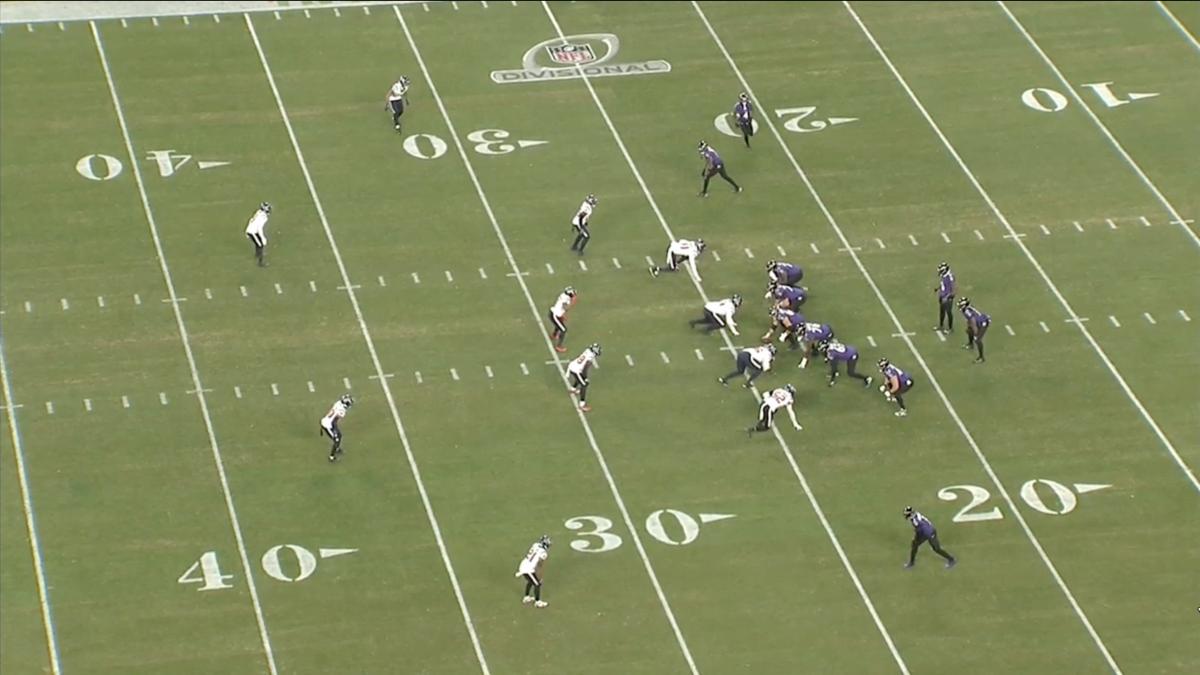
As the play unfolded and Jackson hit the top of his drop, Houston was in an excellent position. The Ravens ran three intermediate-to-deep patterns, all of which were covered well. Meanwhile, fullback Patrick Ricard (No. 42) and running back Gus Edwards (No. 35) flared into the flat and were also covered.
Most importantly, the Texans rushed four—not utilizing stunts or twists, with the idea of keeping Jackson hemmed into the pocket.
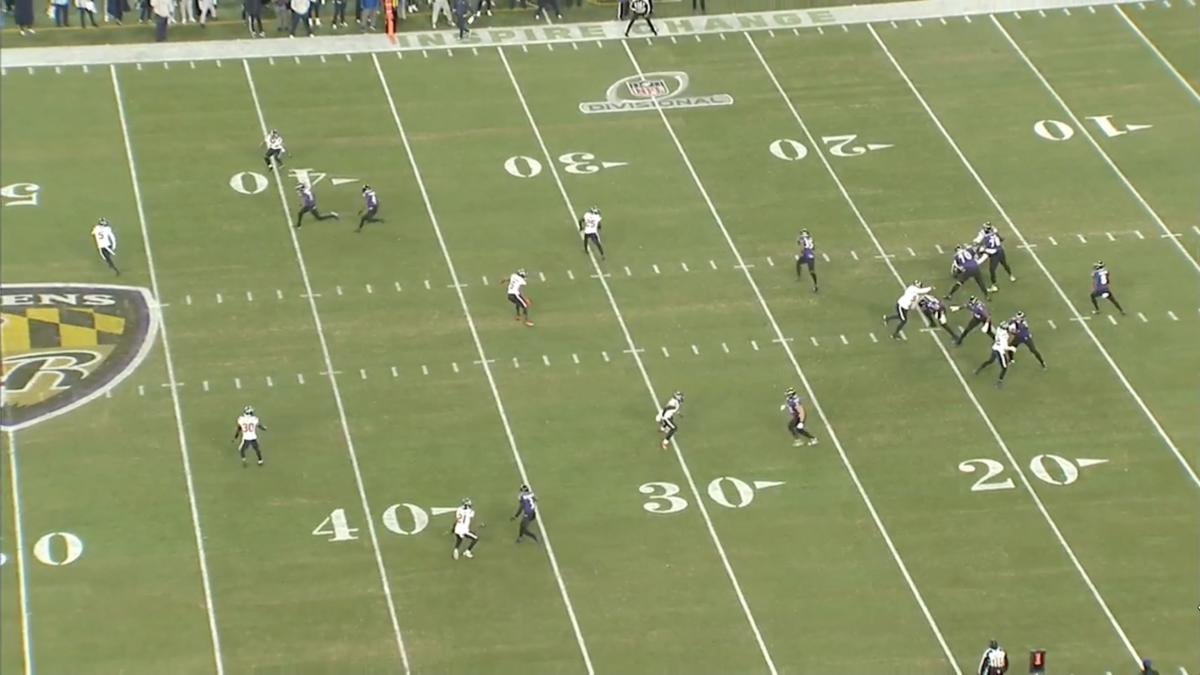
Unfortunately for Houston, that quickly changes. The Texans were still largely in good position coverage-wise with the pocket beginning to constrict, but Maliek Collins (No. 96) got pushed out of his rush lane by center Tyler Linderbaum (No. 64).
Once Collins was displaced in the middle, Jackson had a huge lane to step up and into. With the middle of the field mostly vacant due to the route combinations, Jackson ran untouched for an explosive, 23-yard play.
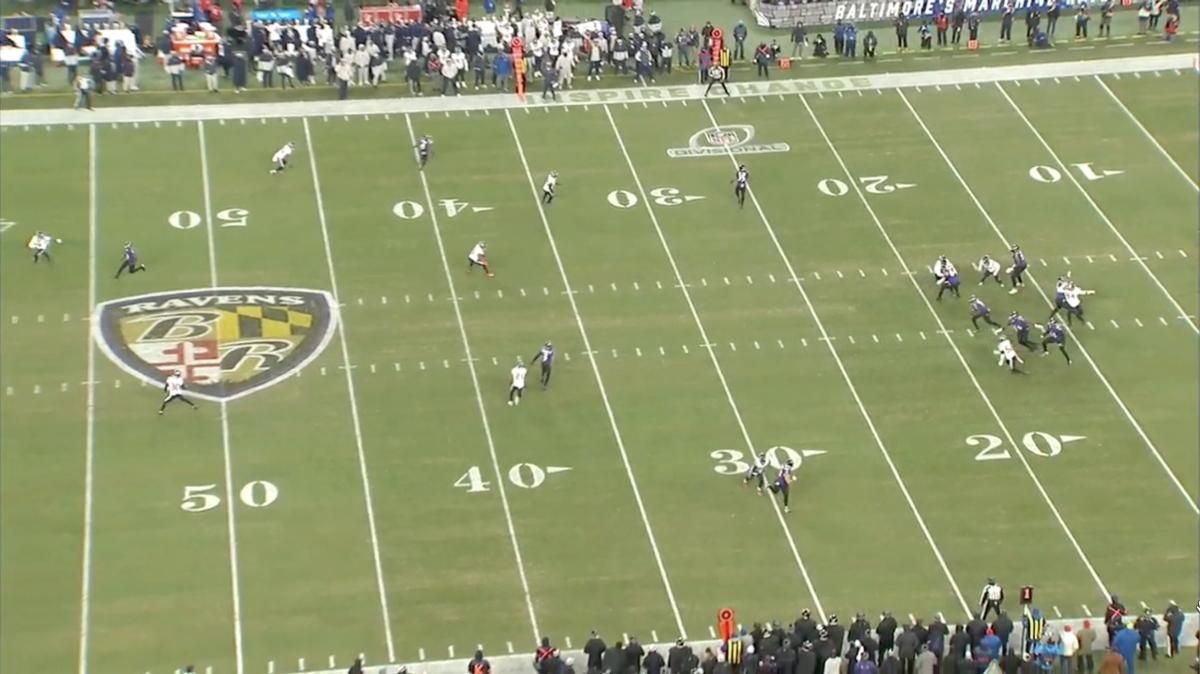
Lamar Jackson poses such a unique threat. Here, the Texans play zone, rush four and cover well. But Jackson gets an opening and torches them anyway. pic.twitter.com/79BUa2uUju
— Matt Verderame (@MattVerderame) January 23, 2024
Jahmyr Gibbs will be key for Lions
Gibbs wasn’t the league’s leading rookie rusher this season, finishing second to Atlanta Falcons’ RB Bijan Robinson. But considering Gibbs’s usage for a team in the NFC championship game, you could certainly argue he was the most impactful of the first-year runners.
We once again saw why in Detroit’s 31–23 win over the Tampa Bay Buccaneers. In the fourth quarter, Detroit and Tampa Bay were tied at 17, with the Lions facing second-and-2 at the Bucs’ 31-yard line.
As seen below, Todd Bowles’s unit is expecting the run. The Buccaneers had nine men in the box to match the Lions’ condensed formation (only one receiver was lined up outside the numbers).
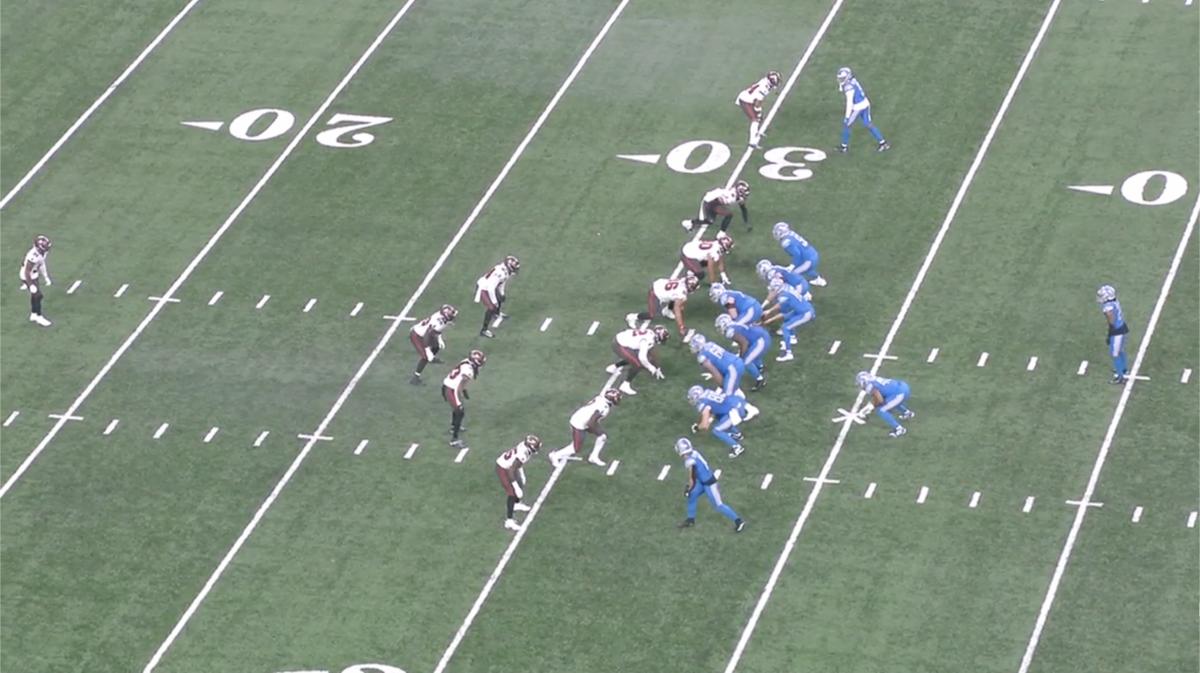
On the snap, tight end Brock Wright (No. 89) and fullback Jason Cabinda (No. 45) were aligned to the left, giving the appearance of a run in that direction. They both blocked down, along with the entire offensive line, save for star right tackle Penei Sewell (No. 58). Sewell kicked his man to the outside, providing Gibbs with a lane.
As for Gibbs, the former Alabama standout did an excellent job of pressing toward the left side before planting his left foot into the ground and making a hard cut toward the backside. The combination of good blocks and Gibbs’s fakeout had Tampa Bay out of sorts.
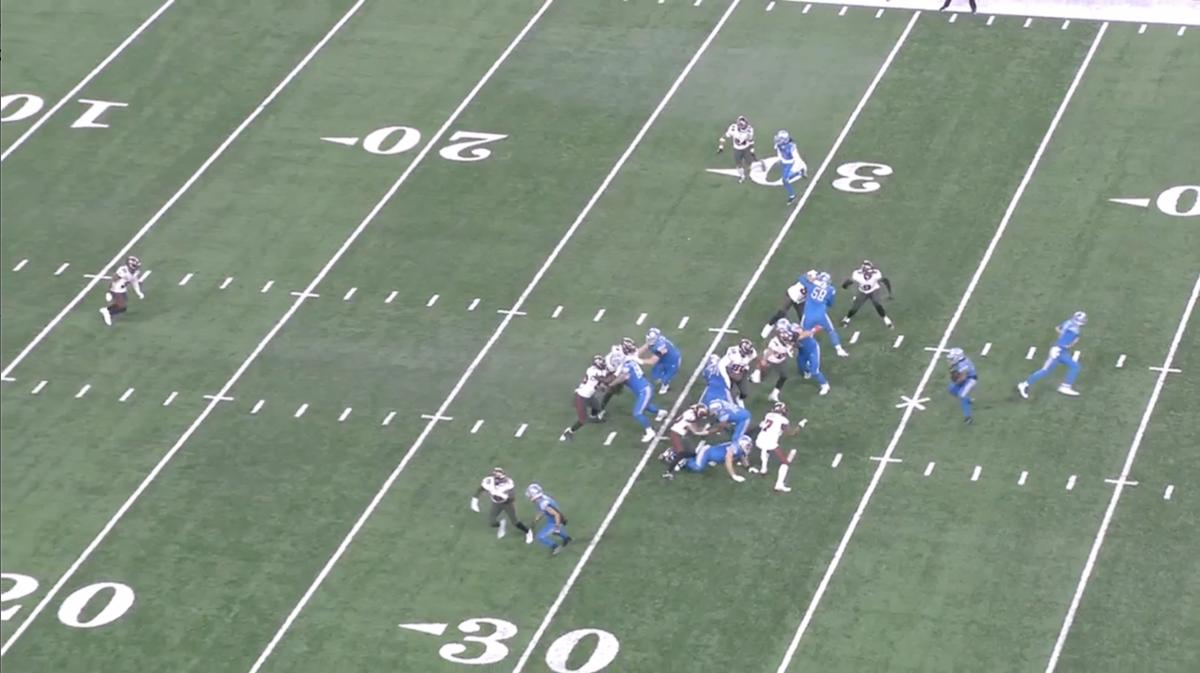
Once Gibbs hits the hole, only Antoine Winfield Jr. is there to make a play. Winfield had a terrific year earning first-team All-Pro honors, but this was a brutal spot against one of the more agile backs in the league.
The result was a whiff from Winfield, and a 31-yard touchdown for Gibbs despite facing a nine-man box at the snap.
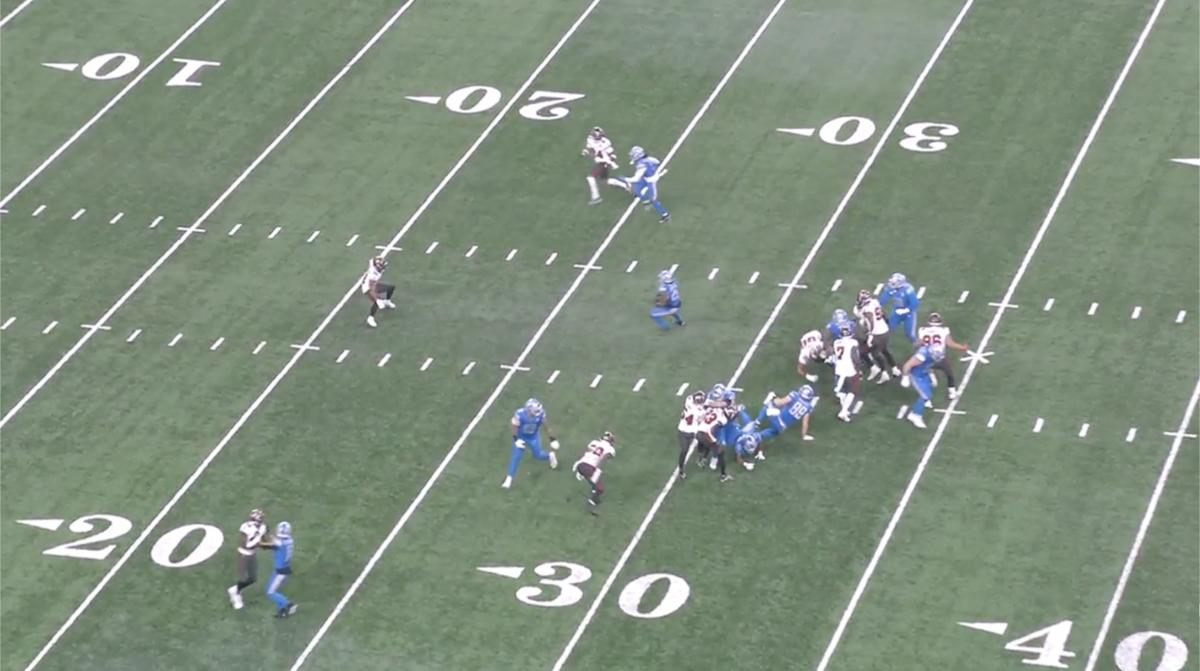
If the Lions are going to knock off the Niners, it starts with their offensive line and Jahmyr Gibbs.
— Matt Verderame (@MattVerderame) January 23, 2024
The Bucs have the numbers up front, but key blocks on the right side along with a sick move from Gibbs on Antoine Winfield Jr. gave Detroit six points here. pic.twitter.com/4w7QmsTMe1
Travis Kelce and a clever disguise are still staples for the Chiefs
After struggling offensively for most of the season, Kansas City has looked much more like the team we’ve seen for the past five years under Patrick Mahomes’s guide.
The Chiefs beat the Buffalo Bills, 27–24, with Mahomes throwing for two touchdowns and 9.3 yards per attempt. Below, we see the first of those scores, with the quarterback finding Kelce (No. 87) on an easy pitch-and-catch to take a 13–10 lead in the second quarter.
On the play, the Chiefs initially lined up in a 2x2 set, condensed inside the numbers. Kansas City was in 12-personnel (RB, 2 TEs, 2 WRs), while the Bills matched with a single-high, Cover 3 look.
However, as can be seen in the two pictures below, the Chiefs created a problem before the snap. They motioned Mecole Hardman Jr. (No. 12) across the formation to the left, putting four eligible receivers on that side (including Isiah Pacheco) while leaving Marquez Valdes-Scantling by himself to the right.
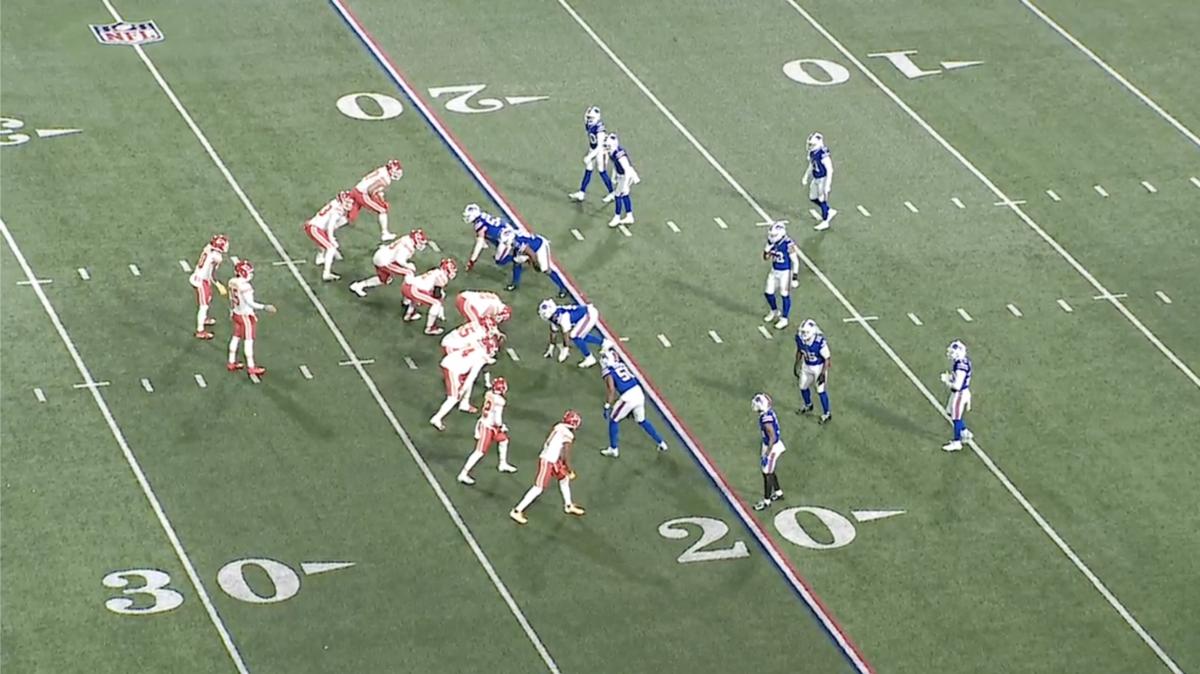
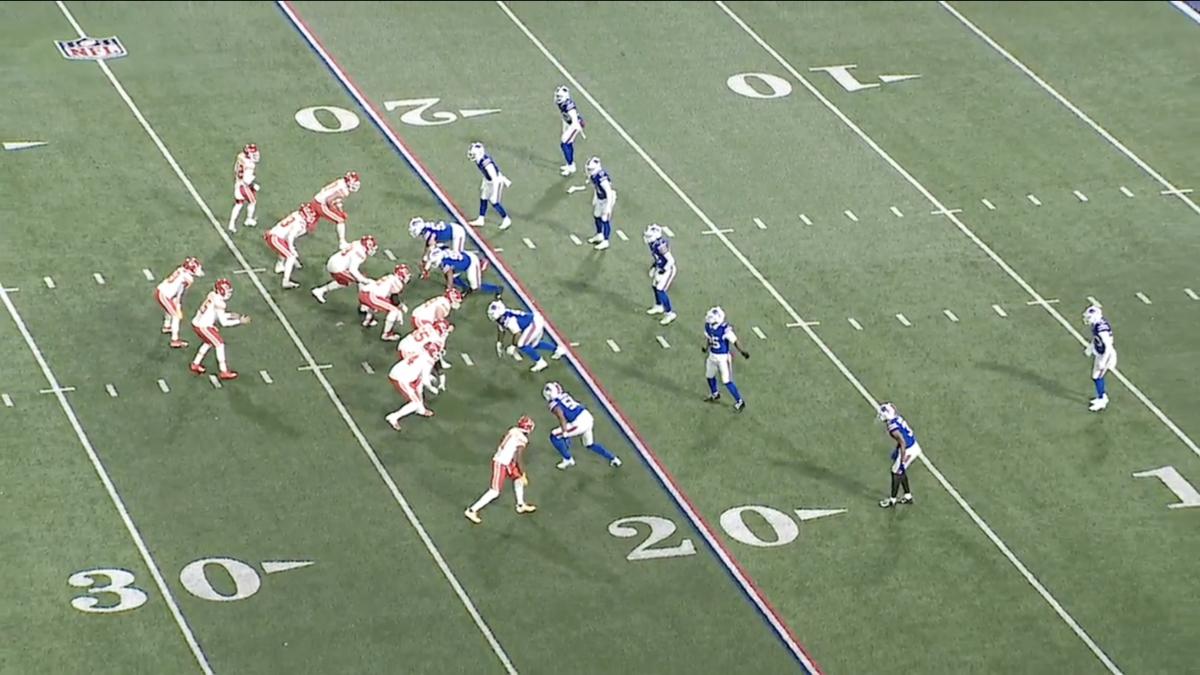
For Buffalo, the issue is numbers. Safety Micah Hyde (No. 23) didn’t react to the motion, and so the Bills were undermanned up top. The Chiefs then ran three patterns to the left side, with Hardman running an out route, while tight end Noah Gray (No. 83) executed a hitch route underneath.
Ultimately, Gray occupied both slot corner Taron Johnson (No. 7) and safety Jordan Poyer (No. 21), while Hardman was covered by Dane Jackson (No. 30). Meanwhile, Kelce ran a corner pattern with nobody near him.
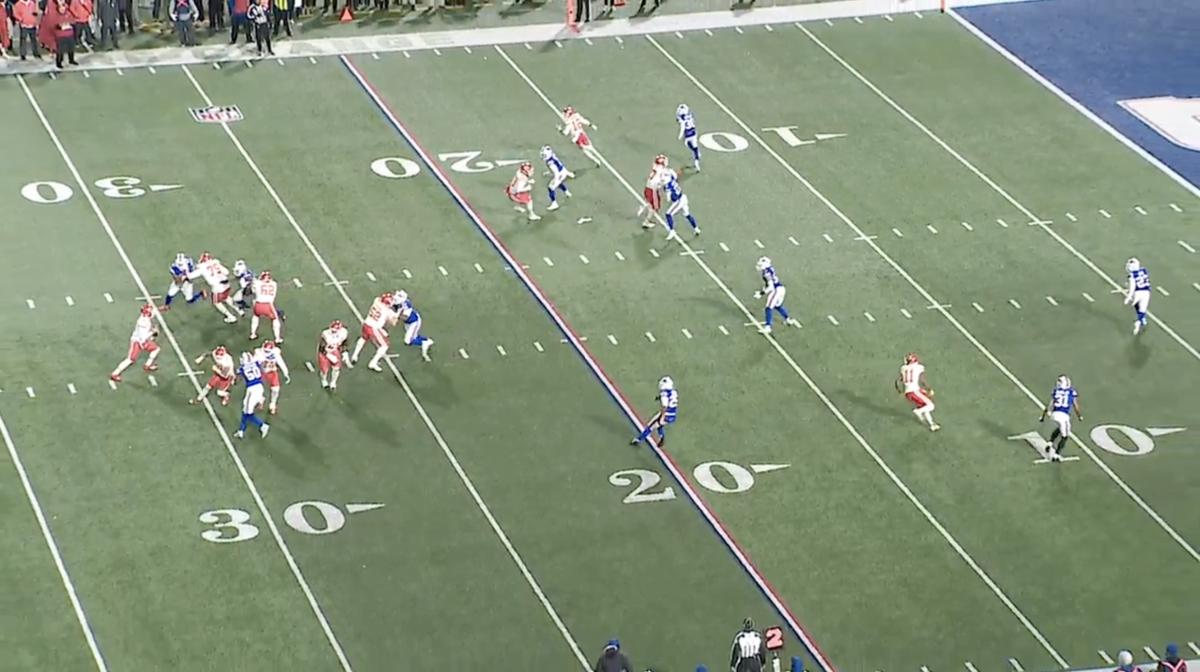
In theory, Jackson is responsible for Kelce, as he’s running directly into the cornerback’s third of the field. However, Jackson was essentially forced into covering Hardman, as Kansas City’s motion made Hardman the outside receiver, while Kelce was pushed down into the slot.
It was a brilliant design and wrinkle by coach Andy Reid, and one the Bills didn’t adjust to.
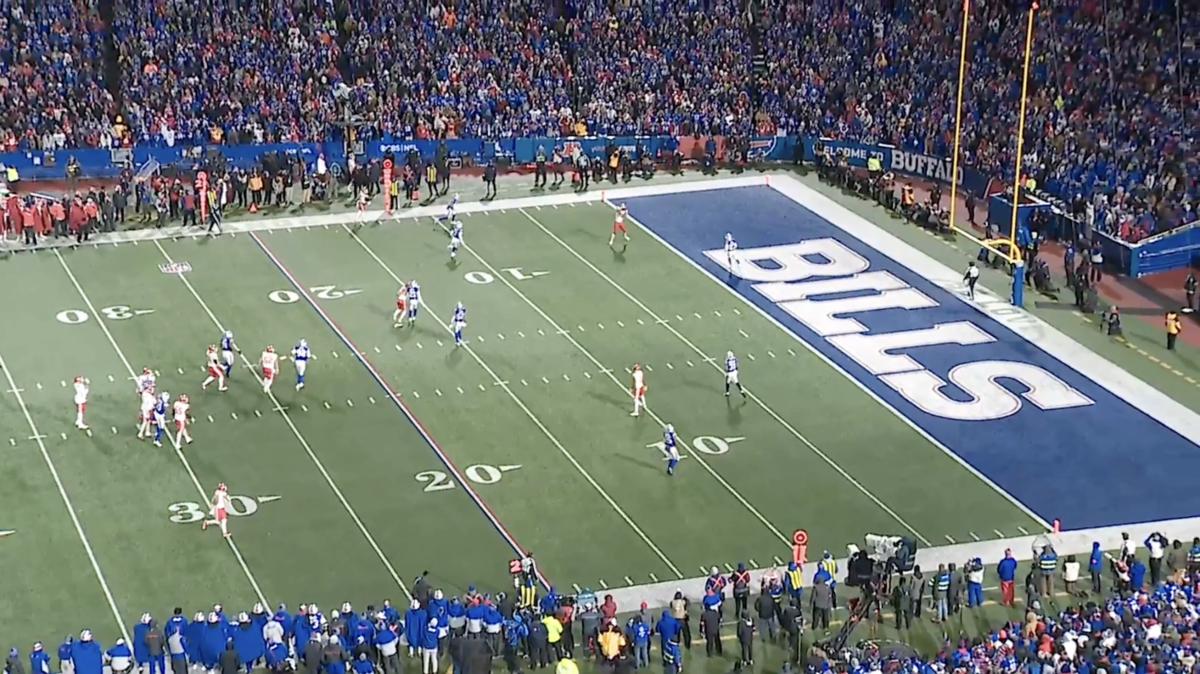
The Chiefs schemed the Bills up here. Buffalo had some communication issues, and KC used Mecole Hardman's motion to make life difficult.
— Matt Verderame (@MattVerderame) January 23, 2024
Ultimately, it's a single-high look, a blown coverage and a walk-in touchdown for Travis Kelce. pic.twitter.com/UtJkbuuKBD
